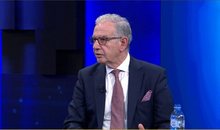
The economy suffers the consequences of the unstable model / Analysis: 200 VIPs of 2022. A lot of laps for nothing

Ranking of the largest companies in the country, according to annual turnover, "Monitor 200", for the year 2022. Revenue growth is fast for many enterprises, but more than the result of improved activity and investment in technology, it has come from rising prices. The slowdown of the economy after the pandemic and price crises only highlighted and deepened the weaknesses of the Albanian economy: high dependence on imports, non-competitive economy, low productivity. Businesses in the industry are suffering from high costs and the devaluation of the Euro, falling more and more out of the rankings. Even the automotive support industry, the only one that was gaining ground, is showing problems and signs of slowing down. Energy trading is the new "construction", but the latter, as always, does not stop, especially the residential one.
If there is a good way to highlight the weaknesses of an economy it is the crisis. The Great Depression of 1929-1939, - when the globe experienced sharp declines in employment, industrial and especially agricultural production, trade and incomes, - began with a contraction in spending and exposed weaknesses in monetary policy, coordination between countries and the gold standard. The dot.com boom in the early 1990s, fueled by the massive growth in Internet usage, went into a bubble within a decade, which showed that these companies were in fact overvalued. The financial crisis of 2008, which caused a global recession, showed the weaknesses in the financial regulatory and supervisory system. The pandemic highlighted the problems of health systems, global supply chains, and so on, the examples are endless.
But, if three decades are enough to create an idea of the model where it is moving, it is actually a random progress, oriented more by the intuition of the businesses themselves, than a stable development, based on clear institutional policies, that would boost competitiveness and innovation.
The two crises, that of the pandemic and the high prices caused by Russia's attack on Ukraine, only highlighted the structural weaknesses of the domestic economy:
- high dependence on imports; the low competitiveness of the manufacturing industry that became more vulnerable to imports;
-the low level of sophistication and the low added value of exporters, which made them more vulnerable to currency fluctuations;
- orientation towards unproductive industries such as construction, which does nothing to help in times of crisis;
- little investment in information technology, which could serve as a shock absorber;
- the informal economy, which is so high that it manages to balance all economic indicators!
The most obvious result of this economy is the inverse correlation between economic growth and poverty income.
Although the fall in the pandemic was lower than forecasts (-3.3%) and the recovery was one of the fastest in the region, the country still continues to have high poverty and income per capita among the lowest in Europe.
The per capita income indicator, in relation to the European average, has stagnated in years at 32-33%, the lowest in Europe, except for Kosovo, Moldova and Ukraine.
In 2022, the economy grew by 4.9%, after a rapid recovery of nearly 9% in 2021. But the growth was largely driven by booming real estate and construction activity.
The return of Albania to a tourist destination influenced the recovery of consumption, amortizing its contraction as a result of high emigration.
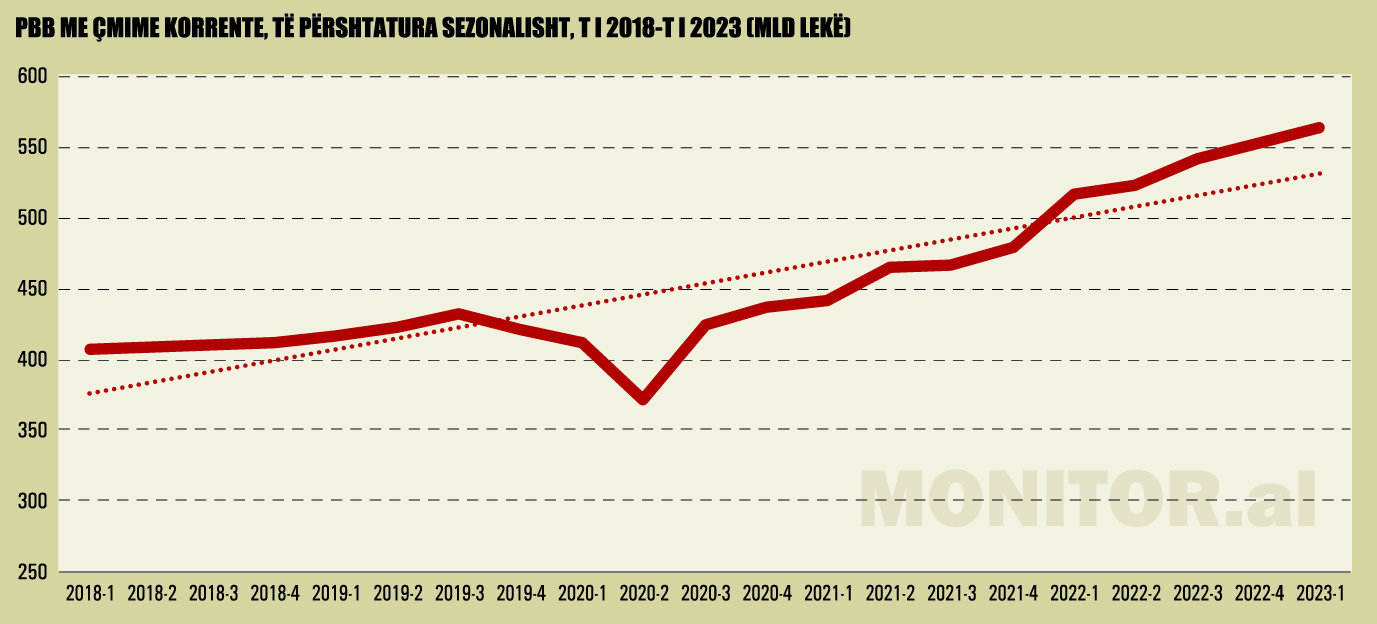
Viti 2022 shënoi dhe nivelin më të lartë të inflacionit, që nga 1998-a, me 6.2% mesatarisht, që kulmoi në tetor në 8.3%, një reflektim i pasojave globale të sulmeve të Rusisë ndaj Ukrainës. Të ndihmuara nga çmimet e larta, pjesa më e madhe e bizneseve të mëdha në vend raportuan rritje dyshifrore të qarkullimit vjetor. Xhiro e 200 kompanive më të mëdha në vend, në vitin 2022, në renditjen e përvitshme të “Monitor 200” ishte 1.5 trilionë lekë (rreth 13 miliardë euro), me rritje prej 24% në raport me 200 më të mëdhatë në vitin 2021.
Por, kjo rritje, më shumë se një ndihmë ishte një telash për shumë kompani, që u përballën në kahun tjetër me shtim të kostove, apo me një reagim të konsumatorëve, që ulën blerjet dhe u fokusuan në mallrat e domosdoshme.
Ekonomia vijoi të vuajë pasojat e modelit ekonomik të paqëndrueshëm, i cili ka krijuar mjedis jokonkurrues, në shumë raste favorizues për një pakicë, pak investime në teknologji e orientim nga importi, mungesë të investimeve të huaja cilësore dhe vlerë të shtuar të ulët e pagat më minimale në Europë. Emigracioni, sa vjen e po bëhet një faktor gjithnjë e më pengues. Mungesa e fuqisë punëtore, e kualifikuar dhe e pakualifikuar, po kthehet në një pengesë reale të bizneseve, si për projektet e tyre të zgjerimit, edhe në përmirësimin e produktivitetit, teksa presioni për rritjen e pagave është i lartë, duke shtuar shpenzimet, pa ndikim real tek eficienca e ndërmarrjeve.
Problematika që u thellua nga krizat
Dy krizat, ajo e pandemisë dhe e çmimeve të larta të shkaktuara nga sulmi i Rusisë ndaj Ukrainës vetëm sa nxorën më shumë në pah dobësitë strukturore të ekonomisë vendase: varësia e lartë nga importet; konkurrueshmëria e ulët e industrisë përpunuese që u bë dhe më e brishtë ndaj importeve; niveli i ulët i sofistikimit dhe vlera e ulët e shtuar e eksportuesve, që i bëri ata më të brishtë ndaj luhatjeve të monedhave; orientimi drejt industrive joproduktive si ndërtimi, që nuk bën asgjë për të ndihmuar në raste krizash; investimet e pakta në teknologjinë e informacionit, që mund të shërbenin si amortizator; si dhe ekonomia informale, që është aq e lartë saqë arrin të zhbalancojë të gjithë treguesit ekonomikë!
Qeveria, me indiferencën e vet ndaj këtij fenomeni, nuk po ndihmon aspak, madje shpesh vë shkopinj në rrota me lëvizje të pastudiuara që nuk lidhen me ekonominë reale, si rritja e pagave me urdhër administrativ.
Modeli i promovuar i koncesioneve, që po rezultojnë në pjesën më të madhe korruptive, dhe shpërdorimi i parave të taksapaguesve po “demoralizon” sipërmarrjet që përballen me konkurrencë të padrejtë dhe mjedis të vështirë për të bërë biznes, siç është deklaruar hapur së fundmi nga shoqatat e investitorëve të huaj, që janë matësi më i drejtë i potencialit ekonomik në vend.
Even in 2022, in the ranking of the 200 largest, trade and distribution enterprises that channel imports to the local consumer prevail. They only bill and artificially increase the turnover of the economy and have an extremely low profit rate. Only a dozen companies are active in the manufacturing industry. Exporters are suffering from the fall of the Euro, which has reduced their income in local currency, leaving the list of the big ones. The supporting auto parts manufacturing industry, the only one attracting investment and performing well through 2022, gave up in the first half of 2023, slowing growth./Monitor
Latest news


How did LaCivita change the DP campaign? Berisha: He studied the opponent
2025-05-08 22:49:51

David defeats Goliath
2025-05-08 22:15:50

Journalist: There are SPAK infiltrators in party headquarters
2025-05-08 21:55:15
Who is the new Pope?
2025-05-08 21:48:13
Berisha finally reveals when he will retire from politics
2025-05-08 21:33:46


LaCivita in Lezha: Albanians will fire Edi Rama from his job
2025-05-08 21:11:20


Berisha: LaCivita chose us because he believes in Reagan's program
2025-05-08 20:48:40
He rejected America to serve Pogradec, Genti Çela tells about life in "Elevate"
2025-05-08 20:26:28




Pope Leo XIV greets the faithful for the first time in St. Peter's Square
2025-05-08 19:29:33




Photo session with LaCivitta in Tirana: For Great Albania
2025-05-08 18:40:18
Source: DASH decision a personal victory for Berisha
2025-05-08 18:30:10
Take off those crazy glasses and see where you've taken him?
2025-05-08 18:02:47
LDK files criminal charges against members of the incumbent Government
2025-05-08 18:02:00

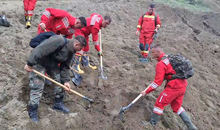




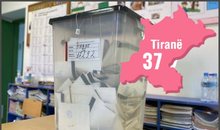
BIRN analysis: Tirana, the determining district for the future majority
2025-05-08 16:04:03




Chris LaCivita's contract with the DP, Berisha: 100% correct and clean
2025-05-08 15:11:11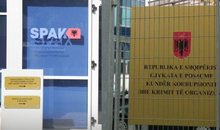

"These are the peak days", Berisha reveals when he will travel to the USA
2025-05-08 14:45:25


Endless boxes with filled-in ballots, DP demands separation of votes from Greece
2025-05-08 14:11:12


Photo/ Who are the 3 associates of Talo Çela arrested in Dubai?
2025-05-08 13:37:09

Hetimi për krimet zgjedhore, Altin Dumani zbarkon në Prokurorinë e Shkodrës
2025-05-08 13:06:21
DASH paves the way for Berisha, Alizoti: Great news on the eve of Great Albania!
2025-05-08 13:03:48
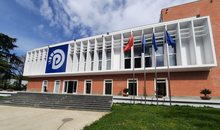
"Freedom works", DP welcomes the US position
2025-05-08 12:48:07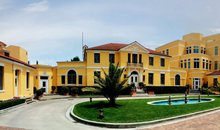
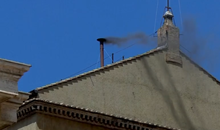
Black smoke rises from the Sistine Chapel, the Vatican still without a Pope
2025-05-08 12:26:18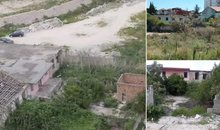





Davide Pecorrelli extradited to Albania
2025-05-08 11:29:04
'May 11, Albania will react', Xhaferri: Electoral criminals will pay
2025-05-08 11:21:46

Gjin Gjoni: Non Grata fell, Rama should get ready to go to McGonigal
2025-05-08 11:01:54
May 8th deadline for immigrants to vote in Greece extended by one day
2025-05-08 10:48:42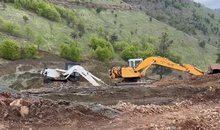
Collapse of massive chrome structure, still no trace of 29-year-old
2025-05-08 10:40:04
Vehicle bursts into flames in Paris Commune
2025-05-08 10:25:43
He gave land to his father and cousin, Basir Çollaku denounces the SP candidate
2025-05-08 10:16:16




Electoral Crimes/ BKH agents and Police conduct checks in Shkodra
2025-05-08 09:19:13
3 associates of Talo Çela arrested in Dubai
2025-05-08 09:02:28
Mouse in the owl's claws, Chris LaCivita responds directly to Rama
2025-05-08 08:45:40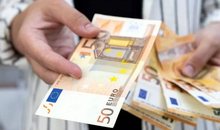
Foreign exchange, how much foreign currencies are sold and bought today
2025-05-08 08:30:38
BIRN: Organized crime, the 'invisible party' of the Durrës elections
2025-05-08 08:26:35
Horoscope, what do the stars have in store for you today?
2025-05-08 08:08:15
Cloudy and rainy, what the weather is expected to be like throughout the day
2025-05-08 07:52:13
Posta e mëngjesit/ Me 2 rreshta: Çfarë pati rëndësi dje në Shqipëri
2025-05-08 07:40:16


Rama attacks Bardhi: Fier cannot be represented by the world's gas
2025-05-07 22:36:22


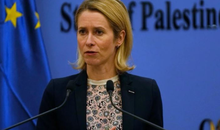
EU calls on Israel to lift humanitarian blockade in Gaza
2025-05-07 21:42:34
"Russia is "asking for a lot"! Vance calls for direct Moscow-Kiev talks
2025-05-07 21:20:16





Bank of Albania sets limits on home loans, Sejko: The maximum will be 85%
2025-05-07 20:16:10

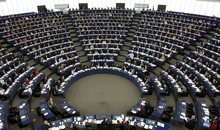
EP calls for immediate lifting of measures against Kosovo
2025-05-07 19:39:58

